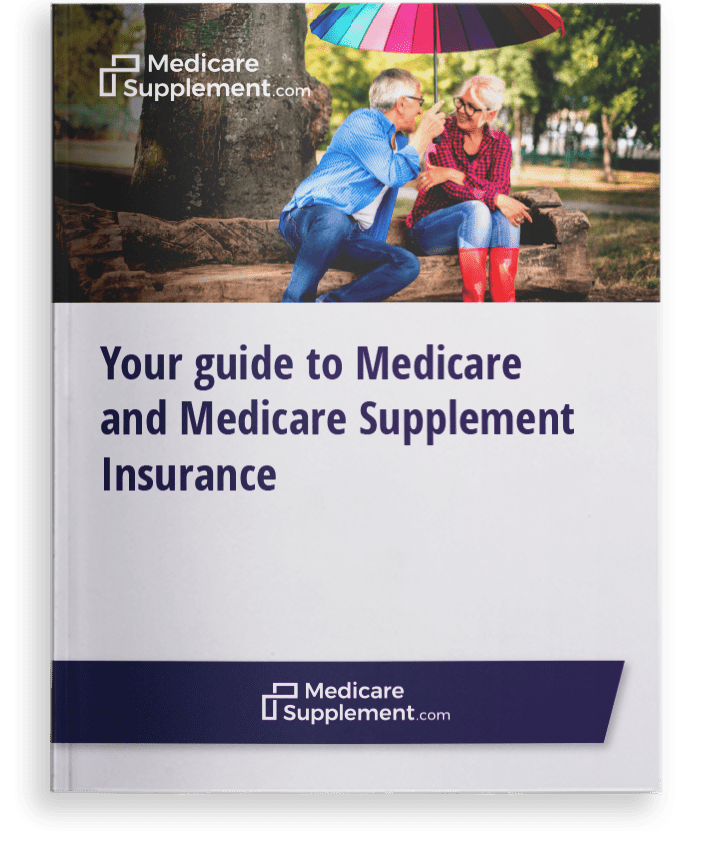Costs
Can Green Card Holders Get Medicare?
Discover how lawful permanent residents, known as green card holders, can access public government public benefits, including Medicare, in the United States.
There are approximately 13.6 million lawful permanent residents, or green card holders, living in the United States.1 These individuals can legally live and work in the country and – in some cases – access public benefits, including Medicare.
Green card holders can get Medicare, but how do they go about enrolling for Medicare benefits? This guide outlines the eligibility rules and enrollment steps for U.S. permanent residents to get Medicare.
What Does Medicare Cover for Green Card Holders?
Medicare can reduce or eliminate the costs associated with health care for all Medicare beneficiaries, including green card holders. These benefits can include coverage for:
- Hospital stays
- Surgical procedures
- Doctor visits
- Outpatient care
- Lab tests
- Durable medical equipment
- Hospice care
- Prescription drugs, if you have a Medicare Part D plan or a Medicare Advantage (Part C) plan that includes drug coverage
Eligible green card holders can access the same benefits as citizens with Medicare. However, Medicare only covers health care expenses within the U.S. It does not typically provide medical coverage for people while visiting other countries.
How Do Green Card Holders Qualify for Medicare?
Green card holders become eligible for Medicare coverage by establishing and maintaining permanent residency in the U.S. You must live in the U.S. for at least five years continuously before qualifying for Medicare.
Most people qualify for Medicare when they turn 65. To be eligible for Medicare as a lawful resident at 65, you must have lived in the U.S. continuously since you were at least 60 years of age.
You may qualify for Medicare earlier if you are a lawful resident receiving Social Security Disability benefits. You can claim Medicare after receiving disability payments for at least 24 months and being a green card holder living in the United States continuously for five years, even if you are not yet 65 years old.
How Do Green Card Holders Get Medicare?
Green card holders get Medicare through Social Security, just like American citizens. If you’re already receiving Social Security retirement benefits at least three months before you turn 65, you don’t need to do anything at all. You will typically be automatically enrolled in Original Medicare (Medicare Part A and Part B).
If you aren’t receiving Social Security benefits as you approach 65, you can contact your local Social Security office or complete a form on the Social Security website to enroll in the program.
In most cases, you’ll simply need to show your green card to prove your status. However, the public benefits agency may also contact immigration authorities to confirm you are a lawful resident.
After enrolling in Medicare, you can decide to switch from Original Medicare to a Medicare Advantage plan, depending on which option is best for your circumstances. Or you might choose to boost your coverage with Medicare Part D and/or a Medicare Supplement (Medigap) plan.
When Should Green Card Holders Get Medicare?
Green card holders should get Medicare during their Initial Enrollment Period. This period lasts seven months, starting three months before the month of your 65th birthday, including your birthday month and continuing for three more months.
Enrolling in Medicare during this period allows green card holders to start accessing more affordable health care earlier. It also helps green card holders avoid any late enrollment penalties, such as:
- Part B penalty
Your monthly Part B premiums could cost an extra 10% for every year you delayed enrollment after you became eligible. In 2024, the standard Part B monthly premium is $174.70 per month.
If you went without Part B coverage for one year, you could pay at least $17.47 more for your monthly premium, and you’d have to pay this increased Part B premium for the rest of the time that you have Part B. - Part D penalty
Your monthly premium may increase by 1% of the “national base beneficiary premium,” times the number of months you weren’t covered. Social Security rounds this amount to the nearest 10 cents.
In 2023, the national base beneficiary premium is $32.74. For example, if you went without Part D coverage for 24 months, you’d pay 24 times 1% of $32.74, rounded to the nearest 10 cents. This amounts to an extra $7.85 each month, which can add up over time.
Can Green Card Holders Get Medicare For Free?
Green card holders who qualify for Medicare would receive premium-free Part A if they worked in the U.S. for at least 40 quarters, or 10 years. People who don’t satisfy the work requirements must pay for their own Part A premiums, the cost of which depends on how long you worked in the country.
As with citizens, green card holders always pay Part B monthly premiums. Amounts vary depending on yearly incomes. Green card holders also pay for any other coverage they choose, such as Medicare Advantage, Medicare Part D or Medigap policies.
What Public Benefits Do Green Card Holders Receive?
Medicare is just one of the public benefits or government assistance that green card holders may receive.
Other public services green card holders can access include:
- Social Security: Retirement benefits, disability benefits, and survivors’ benefits
- Supplemental Security Income: Cash assistance for seniors with low incomes and children and adults with disabilities and low incomes
- Medicaid: Health coverage for people with low incomes
- Health Insurance Marketplace: Channel for purchasing individual and family private health insurance. The marketplace can also help green card holders access income-based subsidies to reduce their health expenses.
- Children’s Health Insurance Program (CHIP): Subsidized health coverage for families with incomes that don’t qualify for Medicaid
- Temporary Assistance for Needy Families (TANF): Temporary cash assistance for families with low incomes participating in job training programs
- Supplemental Nutrition Assistance Program (SNAP): Electronic debit cards to help people with low incomes purchase food.
- Federally Funded Public Housing: Program which places people with low-incomes in government-owned homes
- “Section 8” Housing: Voucher program that helps people with low incomes rent private accommodation
Note that some public benefits may have different names in your state or county. Eligibility requirements also vary. If you want to enroll in a benefit program or check whether you qualify, contact your local public benefits office.
Medicare is one of the many public benefits green card holders can receive. Costs associated with this benefit depend on work history and income. However, no matter what these health insurance policies cost, they are an accessible way for green card holders to save money on their health care costs in the United States.
Learn How to Save on Medicare
Medicare Supplement Insurance plans (also called Medigap) can’t cover your Medicare premiums, but they can help make your Medicare spending more predictable by paying for some of your other out-of-pocket costs such as Medicare deductibles, copayments, coinsurance and more.
Speak with a licensed insurance agent to learn more about Medigap plans in your area, and find a plan that can help you save on out-of-pocket Medicare costs.
Compare Medigap plans in your area.
Find a planOr call now to speak with a licensed insurance agent:
1 Baker, Bryan. (Sep. 2019). Estimates of the Lawful Permanent Resident Population in the United States and the Subpopulation Eligible to Naturalize: 2015-2019. U.S. department of Homeland Security Office of Immigration Statistics. https://www.dhs.gov/sites/default/files/publications/immigration-statistics/Pop_Estimate/LPR/lpr_population_estimates_january_2015_-_2019_v2.pdf.

Get a Free Medicare Guide!
Enter your email address and get a free guide to Medicare and Medicare Supplement Insurance, as well as important Medicare news and tips. We promise to never send you spam – just helpful content!
By clicking "Get your guide" you are agreeing to receive emails from MedicareSupplement.com.

